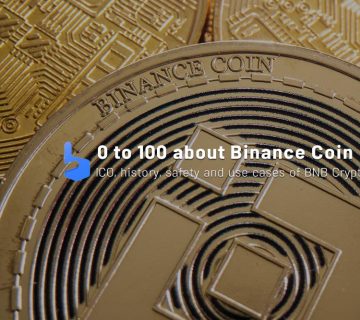What you are about to read:
Mining pools play a crucial role in the world of cryptocurrencies, transforming the way individuals and organizations participate in the mining process. These pools have evolved from a specific concept to the foundation of the blockchain ecosystem. In this comprehensive guide from Brokerland, we’ll explore what mining means, its history, how it works, its advantages and disadvantages, and its importance in the world of cryptocurrencies.
What is a Mining Pool?
Mining cryptocurrency, such as Bitcoin mining, is a process where new coins are created, and transactions on the blockchain network are confirmed. Miners use powerful computer hardware to solve complex mathematical problems, known as Proof of Work (PoW), to verify transactions and secure the network. In return for their efforts, miners receive new coins and transaction fees.
Mining is highly competitive, and with the increasing complexity of mining algorithms over the years, competition and receiving consistent rewards for miners have become progressively challenging. This is where mining pools come into play.
Mining pools involves a collective effort of miners combining their computational power and resources to increase their chances of successfully mining a block and receiving rewards. Participants in a pool work together to solve complex PoW equations and share rewards proportionally based on their computational power.
Evolution of Mining Pools
The concept of mining pools can be traced back to the early days of Bitcoin. Bitcoin, created by Satoshi Nakamoto in 2009, introduced the world to crypto and blockchain technology. Initially, Bitcoin mining could be efficiently done with regular personal computers, but with the network’s growth, the difficulty of mining also increased.
As mining difficulty rose, individual miners faced challenges in solo mining. To address this issue, early miners started informally forming groups to pool their computational power. These groups laid the groundwork for modern pools.
The first official mining pool, “Slush Pool,” was launched by Marek Palatinus (Slush) in late 2010. Slush Pool allowed miners to pool their resources and equally share rewards. This pioneering effort marked the beginning of a new era in the extraction of cryptocurrency.
How Pools Work
Mining pools operate based on a simple principle: miners contribute their computational power to the pool, and the pool operator distributes rewards based on each miner’s share. Here’s a step-by-step breakdown of how pools function:
- Joining a Mining Pool: Miners interested in joining a pool must register in the pool and create a user account. They also need to configure their mining hardware to connect to the pool’s server.
- Configuring the Pool: After registration, miners configure their mining software to connect to the pool’s server. The software provided by the pool ensures that miners work on the correct blockchain and use the appropriate mining algorithm.
- Contributing Hash Power: Miners start contributing their computational power (hash rate) to the mining pool. The combined hash rate of all participants in the pool significantly increases the pool’s chances of successfully mining a block.
- Solving PoW Puzzles: Miners in the pool collectively work on solving Proof of Work (PoW) puzzles. When the pool successfully mines a block, rewards are distributed among participants based on their contributed hash rate. These rewards typically include new crypto coins and transaction fees.
- Payouts: The pool operator calculates and distributes rewards among miners. Payouts can occur at regular intervals, depending on the pool’s policies, ranging from multiple times a day to once a day or more.
- Pool Fees: Most mining pools charge a fee for their services, usually a percentage of the rewards. This fee helps cover the operational costs of the pool, including server maintenance and network connectivity.
Advantages of Mining Pools
Mining pools offer several advantages to miners, making them a popular choice for both individuals and organizations. Here are some key benefits:
Steady Income: Compared to solo mining, pools provide a steady and more predictable income stream. Miners receive regular payments, reducing the uncertainty associated with individual mining.
Increased Reward Chances: Combining computational power with other miners significantly increases the chances of successfully mining a block. This results in a more consistent stream of rewards.
Low Variance: Individual miners may experience long periods without rewards due to the inherent randomness of PoW mining. In contrast, mining pools reduce this variance and ensure miners receive a proportionate share of rewards over time.
Access to Mining Infrastructure: Pools often have powerful mining hardware and infrastructure, allowing smaller miners access to resources they may not have individually.
Simplicity: Joining a pool is relatively straightforward, making it an attractive option for beginners in the crypto space.
Disadvantages of Pools
While mining pools come with numerous advantages, they are not without drawbacks:
Pool Fees: Most pools charge fees for their services, which can reduce miners’ overall income.
Centralization Risk: Mining pools, especially large ones, can become centralized, contrary to the decentralized nature of cryptocurrencies. A few dominant pools may control a significant portion of the network’s hash rate.
Trust in Pool Operators: Miners need to trust the pool operator to fairly distribute rewards and maintain the pool’s security. Instances of dishonest behavior by pool operators have occurred in the past.
Limited Influence: Miners in a pool have limited say in network protocol changes or decisions, as these are typically made by developers and network participants outside the mining pool.
Importance of Mining Pools
Mining pools play a crucial role in the broader crypto ecosystem for several reasons:
- Network Security: By providing a collective computational power needed to maintain blockchain integrity, pools contribute to the security of blockchain networks.
- Coin Distribution: Pools ensure a consistent and widespread distribution of newly minted coins, preventing excessive control by a single entity over the network.
- Accessibility: Mining pools allow individuals with limited resources to participate in cryptocurrency mining, democratizing access to the blockchain and its rewards.
- Liquidity: By offering a regular income stream, pools enable miners to cover their operational costs and maintain liquidity in the crypto market.
- Development Budget: Some pools contribute to the development of blockchain networks by allocating a portion of their income to software development and network improvements.
Types of Mining Pool
These pools come in various types, utilizing different cryptocurrencies and extraction algorithms. Here are a few common types:
Bitcoin Mining Pools: These pools exclusively focus on mining Bitcoin. Some of the largest and most well-known pools, such as F2Pool, Antpool, and BTC.com, are Bitcoin pools.
Multi-Currency Mining Pools: These pools allow miners to switch between different cryptocurrencies, optimizing their mining efforts for maximum profitability. Examples include NiceHash and MiningPoolHub.
Ethereum Pools: Ethereum, one of the largest and most valuable cryptocurrencies, has its set of pools, including Ethermine and SparkPool.
GPU and CPU Mining Pools: While Bitcoin mining has largely shifted to specialized ASIC hardware, some cryptocurrencies like Monero can still be mined with consumer-grade GPUs and CPUs. Dedicated pools for such mining, like SupportXMR for Monero, exist.
Merge Mining Pools: Merge mining enables miners to simultaneously mine multiple cryptocurrencies based on a common algorithm. For instance, miners can mine Namecoin and Bitcoin simultaneously since they share the SHA-256 algorithm. Eligius was one of the early pools supporting merge mining.
Decentralized Pools: The goal of these pools is to address concerns related to the centralization of traditional mining pools. Decentralized pools use smart contracts and blockchain technology to distribute rewards directly among miners without a central operator. Examples include P2Pool and YIIMP.
Risks and Important Considerations
While mining pools offer numerous benefits, miners should be aware of potential risks and security considerations:
- Security: Ensure that the pool you choose follows best security practices. Look for pools that provide secure connections (SSL/TLS) and employ strong authentication methods.
- Reliability: Research the reputation and track record of the pool operator. Be cautious of new or unknown pools that may have suspicious motives.
- Centralization Risk: Be mindful of the risk of centralization associated with large pools that control a significant portion of the network hash rate. A highly centralized pool can potentially harm network decentralization.
- Fee Transparency: Ensure that the fee structure of the mining pool is transparent and well-documented. Hidden or unclear fees can negatively impact your earnings.
- Pool Hopping: Some miners engage in a practice called “pool hopping,” where they switch between pools based on short-term profitability. While this strategy can maximize profits, it can also disrupt the stability of smaller pools.
- Security of Payment Addresses: Ensure the security of the payment addresses you provide to the mining pool. Protect your private keys and use secure crypto wallet (such as crypto hardware wallet or a crypto wallet for android) addresses for receiving your earnings.
Conclusion
Mining pools have transformed the landscape of cryptocurrency mining, enabling a broader spectrum of participants to engage in the process and share in the rewards. They have become a vital component of blockchain networks, contributing to network security, coin distribution, and accessibility.
However, selecting the right mining pool is a decision that should not be taken lightly. Miners need to consider factors such as the coin they want to mine, pool size, fees, reputation, and security measures. Additionally, staying informed about the evolving landscape and adjusting for optimal profitability and network participation is essential.












